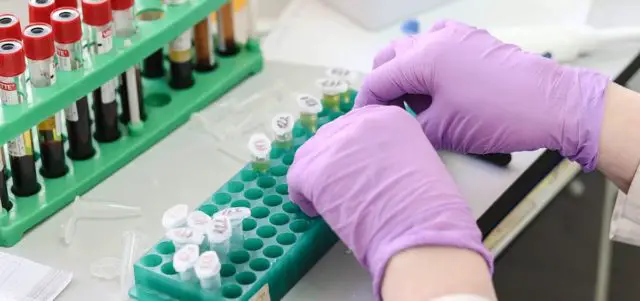A new study published in “The Lancet Oncology” reports that for 7 common cancer types (esophagus, stomach, colon, rectum, pancreas, lung, and ovary), survival has increased markedly across high-income countries over the period 1995–2014.
The study was led by researchers from the International Agency for Research on Cancer (IARC) and undertaken within the International Cancer Benchmarking Partnership (ICBP).
Across the 7 countries included in this ICBP study –Australia, Canada, Denmark, Ireland, New Zealand, Norway, and the United Kingdom (UK)– the article reports the following findings:
- The largest improvements over the 20-year period were observed in survival at 5 years after diagnosis for cancers of the colon and rectum. Depending on the country, 48–59% of all patients with rectal cancer diagnosed in 1995–1999 survived for 5 years after diagnosis; this proportion rose to 62–71% for patients diagnosed in 2010–2014.
- Survival also increased for sites with poorer prognosis, such as cancer of the oesophagus, stomach, lung, and ovary. An increase of up to 11% points was observed in some countries.
- Generally, larger improvements in survival were observed for patients who were younger than 75 years at diagnosis compared with their older counterparts. Survival was consistently higher in Australia, Canada, and Norway, followed by New Zealand, Denmark, Ireland, and the United Kingdom.
This study from the Cancer Survival in High-Income Countries (SURVMARK-2) project is the latest cancer benchmark report of the ICBP, a global, multidisciplinary partnership of clinicians, academics, and policy-makers seeking to understand how and why cancer survival differs across countries with high-quality cancer registries as well as universal access to, and comparable expenditure on, health care.

Data on more than 3.9 million patients with cancer collected by 21 population-based cancer registries in 7 high-income countries over the period 1995–2014 were compared and evaluated, with a focus on benchmarking 1-year and 5-year net survival estimates.
Recent trends in cancer incidence and mortality rates were also examined to assess national progress in cancer control and to generate hypotheses as to the drivers of these trends. The joint evaluation of trends in incidence, mortality, and survival indicated progress in 4 out of the 7 studied cancer types: cancer of the stomach, colon, lung (in males), and ovary.
Together, these findings suggest that although cancer survival continues to increase across high-income countries, international disparities persist. Earlier stage at diagnosis and timely access to effective treatment are likely to be key determinants of these patterns. Potential differences in the way that cancer cases are registered and classified may have partially influenced the results, and this will be explored in the next phases of this ICBP project.
Streamlining data collection and bringing consistency to coding practices will make it easier to draw comparisons at an international level, providing more opportunities to identify and share good practices that can improve the outcomes for patients with cancer around the world.
This study demonstrates the need for national governments and health bodies to continue to invest in early diagnostic strategies and screening programs, and to ensure that patients have equitable access to the best available treatments.
This study used the highest-quality data from population-based cancer registries to date to assess progress in cancer control strategies over a 20-year period. A global effort is required to streamline data collection and coding practices so that accurate comparisons can be drawn at an international level and, in turn, lessons learned about policy and practices can be shared to improve the lives of patients with cancer.
The International Agency for Research on Cancer (IARC) is part of the World Health Organization. Its mission is to coordinate and conduct research on the causes of human cancer, the mechanisms of carcinogenesis, and to develop scientific strategies for cancer control.
The Agency is involved in both epidemiological and laboratory research and disseminates scientific information through publications, meetings, courses, and fellowships. If you wish your name to be removed from our press release e-mailing list, please write to [email protected].
Note: The International Cancer Benchmarking Partnership (ICBP) is a global, multidisciplinary partnership of clinicians, academics, and policy-makers seeking to understand how and why cancer survival differs across countries with high-quality cancer registries as well as universal access to, and comparable expenditure on, health care. The ICBP is programmed-managed by Cancer Research UK.

